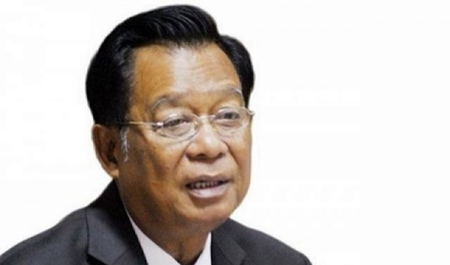BANGKOK, May 3 – Conflicting reactions to the surging baht between Thailand’s finance minister and the central bank governor will jeopardise the country and may lead to an economic crisis, veteran economist Virabongsa Ramangkura warns.
The former finance minister and chairman of the central bank’s board of directors said Finance Minister Kittiratt Na-Ranong and BoT Governor Prasarn Trairatvorakul should work together to find ways for economic stability instead of passing the buck.

Mr Virabongsa said the finance minister is legally accountable for the Bank of Thailand’s profit and losses, but he practically could not object to the BoT chief.
When damage is done, the prime minister and finance minister, and not the BoT governor, are held responsible to the House of Representatives, he said.
The central bank’s decision is made by the Monetary Policy Committee (MPC), but most MPC members are not experts in macro economy, he said, adding that the powerful MPC would not listen to differing opinions.
Mr Virabongsa, who has served as chairman of the BoT’s board for over a year, admitted that he has been uneasy and concerned with the future situation and warned the central bank earlier when the Thai currency was at Bt33 against the dollar. It has now appreciated to Bt29 against the dollar.
Thailand’s policy interest rate at 2.75 per cent is 0.25 per cent higher than other countries, attracting foreign capital inflows.
He said he has repeatedly urged the central bank to reduce the interest rate but to no avail as the BoT insisted that it had several measures to tackle the strengthening baht.
The finance minister has sent written warnings to the BoT governor several times but he received no response.
“I am not empowered to dismiss the BoT governor and I don’t want the situation to reach that stage,” he said.
He said the BoT’s budget deficit has increased from Bt530 billion at the end of last year to over Bt800 billion in Q1 this year and it may reach Bt1 trillion if its loss persists. The budget deficit which led to the so-called Tom Yum Kung financial crisis in 1997 was Bt1.14 trillion.
Finance Minister Kittiratt said the proposal on reducing interest rate was given to the BoT governor but a conclusion in the MPC’s meeting on Monday was not in line with an earlier agreement.
The minister admitted that the BoT and the Finance Ministry have not worked closely as believed by the public.
He said the Finance Ministry proposed the baht movement at Bt31 against the dollar but it has strengthened to Bt29 against the dollar – the rate which has widely negatively affected private entrepreneurs.
If the central bank fails to issue any measures, the Thai currency may surge higher and affect the country’s economic mechanism, he said.
He reiterated his earlier statement that he is not empowered to dismiss the BoT governor, saying that the power lies with the majority of the central bank’s board of directors.




